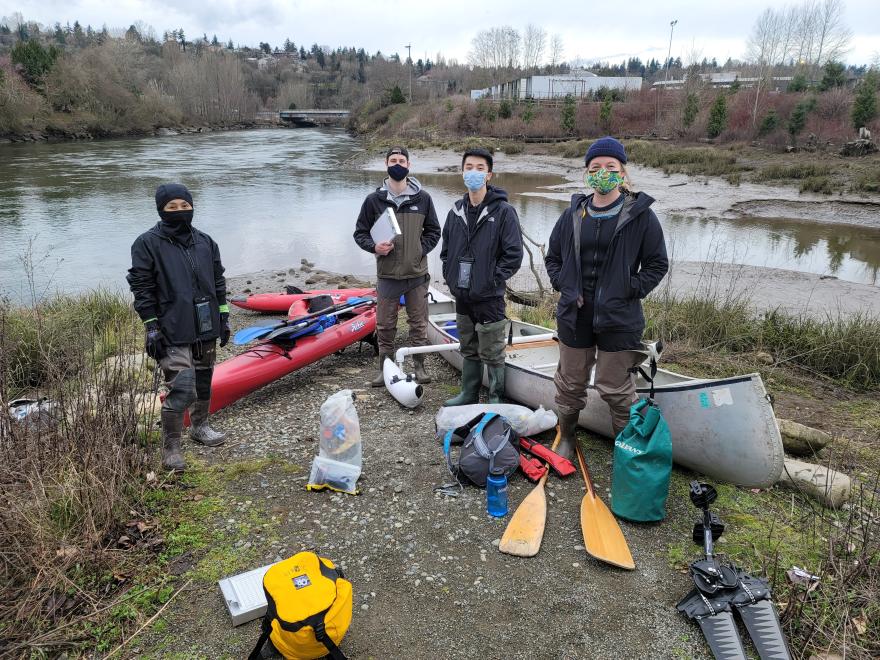WASHINGTON – The Green-Duwamish River watershed, which runs through urban communities and into the industrial core of Seattle, includes some of the most diverse social, economic and ecological conditions in the Pacific Northwest. Despite the beauty of this estuary system, many of the processes that support diverse species and the benefits its ecosystems provide humans have been degraded.
With support from the USDA Forest Service Pacific Northwest Research Station, four teams of undergraduate students evaluated the potential to restore these waters by improving infrastructure management along the Duwamish River including the use of large wood, which can provide habitat.
The four student projects focused on a reach upstream from Port of Seattle facilities where fresh and salt water mix to create uniquely important habitat for out-migrating juvenile salmon. Wes Lauer, faculty advisor in civil and environmental engineering from Seattle University, worked with the students and facilitated their collaboration with scientists from the Environmental Protection Agency and King County on the project.
“All the students got out on the river where they were exposed to real-world civil engineering issues,” Lauer said. “Also, over the life of the project, they had the chance to observe how scientists from different agencies collaborated to solve problems.”
Lauer and his students even developed new technology—a low-cost sensor to monitor water quality—that he has since incorporated into his environmental science curriculum. This work was published in a peer-reviewed article that came out in December 2022.
Monika Derrien, a research social scientist with the Pacific Northwest Research Station, helped oversee the projects. Among other topics, she studies how community-driven education and research, including civic science projects such as these, can address environmental injustices—or discriminatory practices regarding environmental impacts—for young people. She met regularly with students (virtually to mitigate COVID-19 risks).
“The projects brought local, state and federal interests together to support opportunities for restoration in the Duwamish River,” Derrien said. “They ended up being a great investment in student learning, providing them with the experience of hands-on environmental science in their own community.”
The Duwamish River is part of the Urban Waters Federal Partnership Program, an initiative that focuses on salmon recovery and other environmental justice issues, particularly in economically distressed urban areas. The need here is real: the lower Duwamish River is so polluted that a 5-mile stretch of it was declared a Superfund site by the Environmental Protection Agency in 2001.
These student projects fulfilled the community-led revitalization mission of the Urban Waters Federal Partnership and gave students the opportunity to interact with a wide range of potential career paths in the scientific community, municipal government and conservation organizations.

